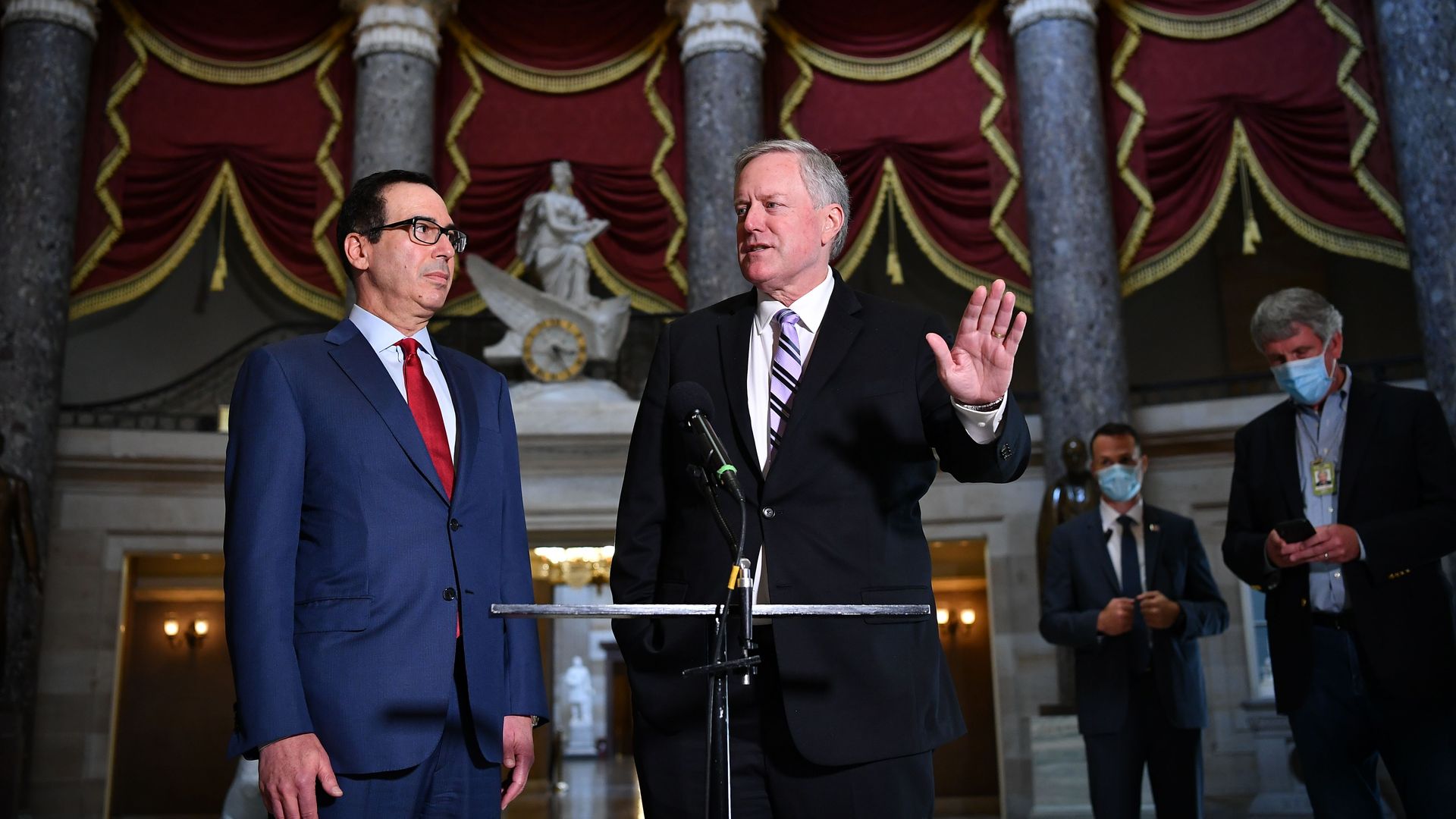Aug 7, 2020 - Politics & Policy
White House recommends Trump issue executive orders on coronavirus aid
Add Axios as your preferred source to
see more of our stories on Google.

Treasury Secretary Steve Mnuchin (L) and White House Chief of Staff Mark Meadows speak to the media on Capitol Hill. Photo: Mandel Ngan/AFP via Getty Images.
